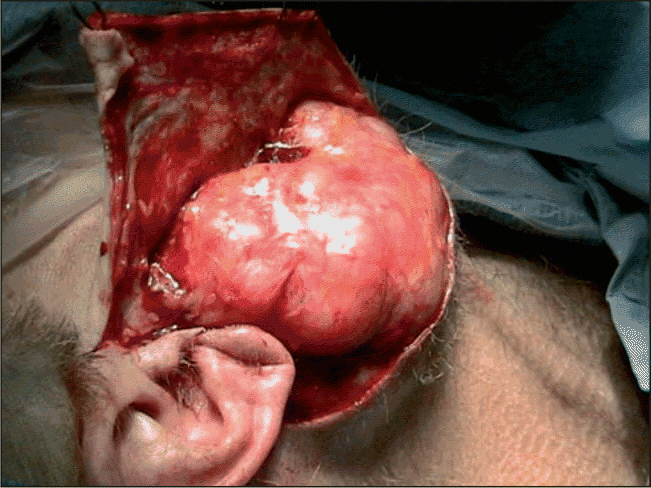Dr. Eisele believes that some patients, especially those with complex disease, are best managed using a multidisciplinary approach at a cancer center. But, he said, general otolaryngologists-head and neck surgeons are quite capable of managing parotid tumors. And in the parotid, it’s actually the exception rather than the rule that there is going to be a complex procedure requiring special expertise.
Explore This Issue
November 2008Follow-Up and New Directions
Combined surgical and radiotherapy now offers longer-term tumor-free survival rates for many patients with salivary gland cancer. However, late recurrence after five years-either local, regional, or metastatic-is not uncommon. Regular follow-up will be necessary to assess these patients for possible return of their disease.
The addition of chemotherapy to a combined regimen remains largely unverified as to efficacy; in the most recent NCCN guidelines, for instance, the panel was not in agreement about the approach of chemoradiation (using cisplatin) because there are no published studies to date for unresectable salivary gland tumors.10 Several clinical trials are currently active evaluating a number of chemotherapeutic and targeted therapies in patients with metastatic or recurrent salivary gland cancer.11 One recent phase II trial reported by the Eastern Cooperative Oncology Group showed moderate activity of paclitaxel in patients with recurrent mucoepidermoid and adenocarcinoma-type tumors. The drug produced no response in patients with adenoid cystic carcinomas.12
Dr. Eisele, who is Co-Chair of the National Cancer Institute’s Task Force on Rare Tumors, emphasizes that enrolling patients in clinical trials conducted by cooperative trial groups will furnish needed answers to questions about salivary gland malignancies. For instance, which tumor types are most likely to respond to targeted molecular therapies? Which targeted therapies already commercially available might benefit these patients?

Especially for people with recurrent disease, whether it is metastatic or locoregionally recurrent, insights into the molecular underpinnings of their tumors may prove especially beneficial. Not only are these cancers heterogeneous in terms of tumor types, but the heterogeneity from patient to patient makes treatment even more challenging, he said. For instance, he observed, one patient’s adenoid cystic carcinoma might be c-Kit positive, making it a possible target for imatinib (Gleevec®). In another patient, this may not be the case. In addition to cooperative groups and the Task Force for Rare Tumors, some private foundations, such as the Adenoid Cystic Carcinoma Research Foundation (www.accrf.org ), will, he hopes, help to make strides in advancing targeted therapies.
Leave a Reply